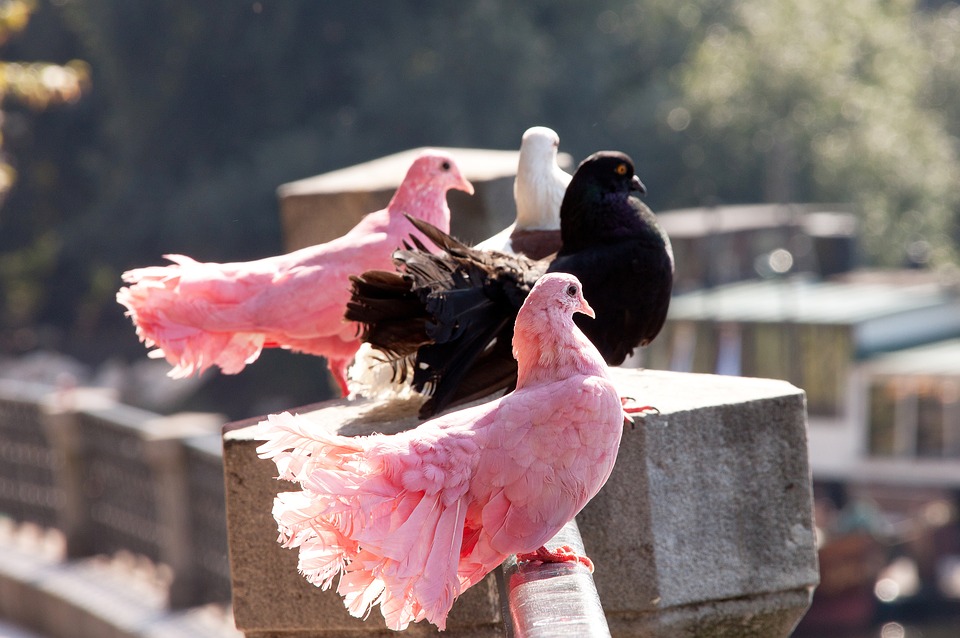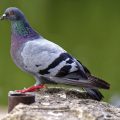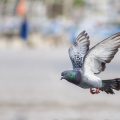Table of Contents
Dating back in 220 A.D. in Belgium, pigeon racing is a bird – racing competition that has a single starting line and over a hundred finish lines! In recent years, the popularity of the sport has been on a decline in some countries because not many people fancy pigeons and there is a lack of public interest. In addition to that, some countries and states ban pigeon racing. Fortunately, pigeon fanciers still hold races and it is still widely popular in countries like England, Japan, Australia, Canada, Denmark, China, Taiwan, Belgium and also in the U.S. (although some states ban them).
The pigeon race involves a specific breed of these intelligent and gentle – looking birds. The sport of pigeon racing uses the specially trained “racing homers.” Simply put, the race happens this way: the racing homer pigeons are released at a specific area with the goal of returning to their homes, within a meticulously measured distance. The results are compared to the other pigeons in the race and it includes the time it takes for the pigeon to cover the distance as well as the rate of travel is measured; the fastest one who covered the longest distance wins.
Pigeon Racing Chips
The competition became quite popular in some other countries making pigeon fanciers establish pigeon racing clubs in their respective areas. Pigeon racing club members usually train and condition their racing homers to traverse various distances ranging from 100 to 1,000 kilometers. In the past, racers and judges used a special clock to determine race winners but over time, pigeon racing clubs have developed different kinds of measuring and timing devices in order to accurately record the time the racing pigeons arrive at their destinations. Chips are now attached to the pigeon’s leg which can register the time it lands on the destination. When birds land at the same time, the race is considered won by a tie. There has also been a variation in races wherein all birds are trained the same way and in races, they originate from one location and head to the same destination. In this setting, it does not matter much who the trainer is, but how successful the bird is.
Costs and Rewards of Pigeon Racing
Pigeon racing is not a cheap competition. This could also be the reason why not many people are involved in it. The costs for racing pigeon breeds vary but it can cost anywhere between $200 and $1,000 or more. Racing pigeons can be purchased through breeders and catalogues. On top of the purchase fee, an owner is expected to spend for feed, upkeep and medicine of the pigeons. In addition to that, no one can guarantee that a pigeon will return or find its way to the finish line/s.
Entry Fees
Pigeon owners also need to pay race entry fees so that their bird can compete. For instance, a race entry fee can be $1,000 plus a perch fee of $200 to $400. The perch fee also covers the two backup pigeons of an owner. In case an owner will enter his backup pigeons to the race, there is an additional entry fee of $1,000 per bird. An owner who enters his pigeon to the race is also required to pay $50 for every pigeon as a buyback fee. When it ends up in the top fifty, the pigeon are usually auctioned off and the owner gets a refund of the buyback fee. Half of the auction price goes to him, and the half goes to the race organizers.
Costs of Pigeon Racing
A lot of people love the risk of pigeon racing, even when there is a chance that the birds won’t come back or cross the finish line. This is because the prize money of is usually high. For instance, in Las Vegas, the prize pot is $250,000 for the first place winner and $50,000 for the second place. The top 50 finishers are also paid – the higher the rank, the higher the prize. As with any animal sport, pigeons are expensive to keep. First, getting the best breed is not exactly cheap. Then you need to consider the costs for pigeon feed, its vaccinations as well as necessary training equipment and upkeep but if this is your passion then it’s definitely worth it.
If you are interested in racing pigeons, it is good to get in touch with one of the pigeon racing clubs or communities in your area. They will provide you with a starter pack to help you get all the basic information you need about pigeon racing. You can also avail the book in this website for more information.






 Author and long-time animal lover. Sharing knowledge on pet care through experience and the written word.
Author and long-time animal lover. Sharing knowledge on pet care through experience and the written word. 